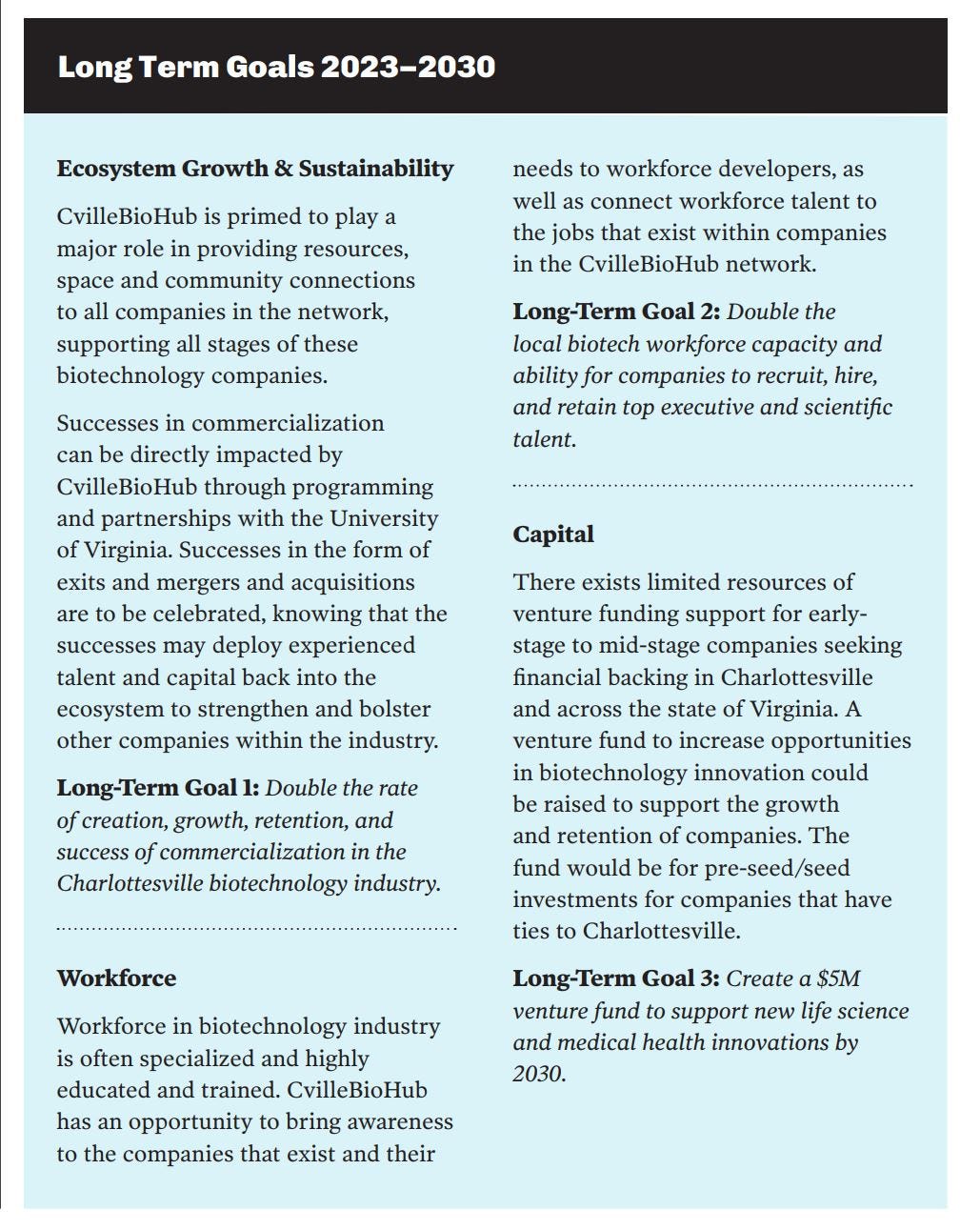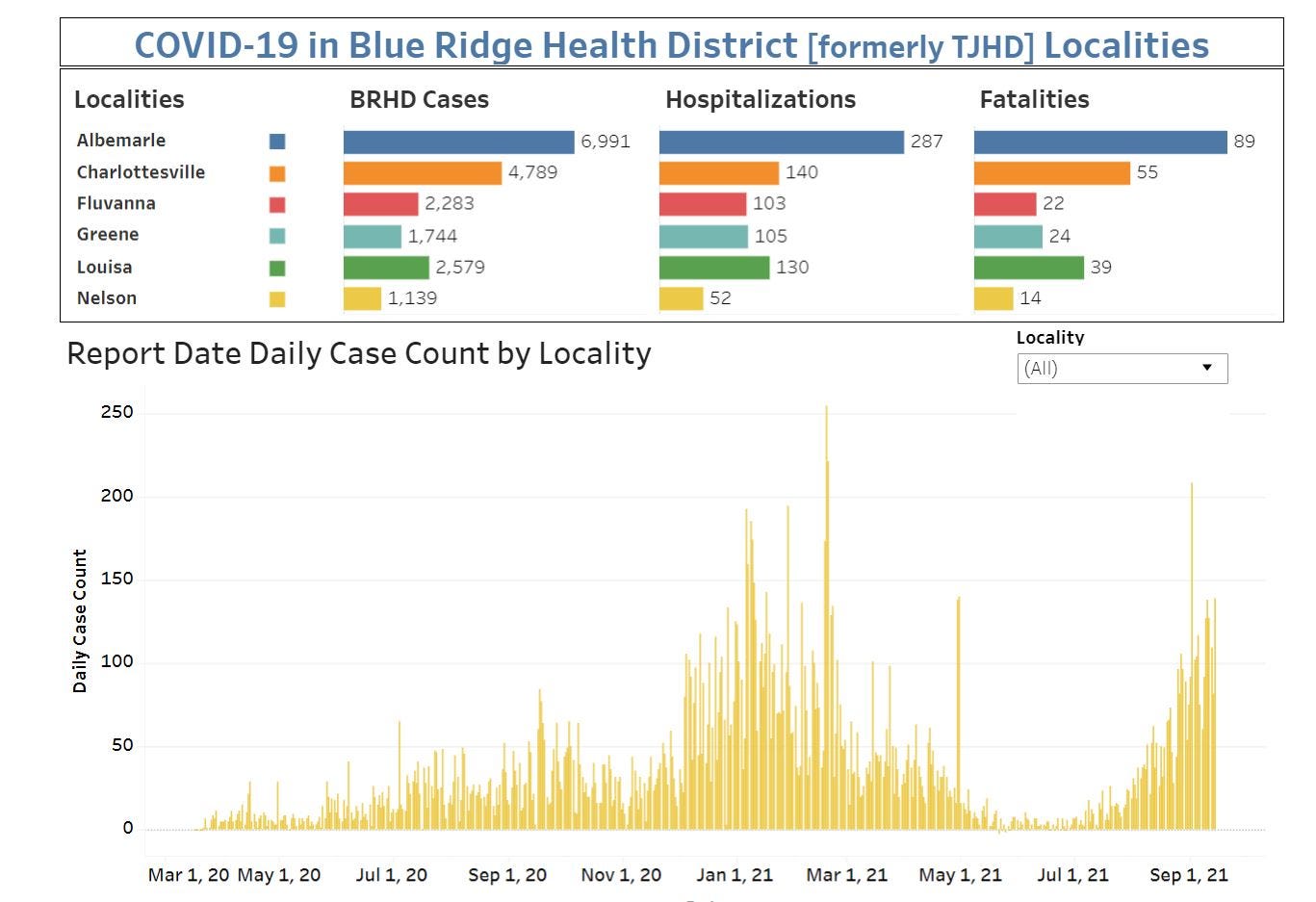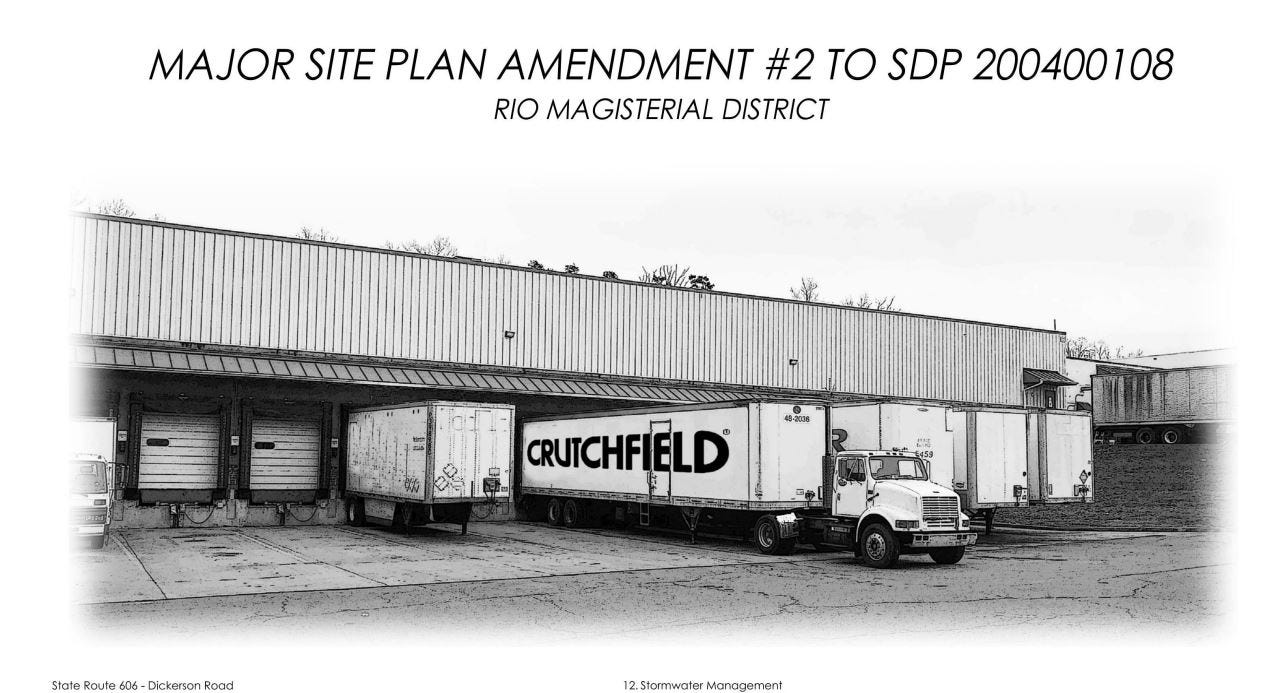In today’s Patreon-fueled shout-out:
Fall is just around the corner, but the summer heat is sticking around a bit longer. Your local energy nonprofit, LEAP, wants you and yours to keep comfortable all year round! LEAP offers FREE home weatherization to income- and age-qualifying residents, so, if you’re age 60 or older, or have an annual household income of less than $74,950, you may qualify for a free energy assessment and home energy improvements such as insulation and air sealing. Sign up today to lower your energy bills, increase comfort, and reduce energy waste at home!
On today’s show:
Charlottesville City School Board is briefed on details of reconfiguration project
The Albemarle Economic Development Authority learns about the CvilleBiohub
Crutchfield files plans to expand their warehouse space near the airport
The seven-day average for new COVID cases in Virginia has increased to 3,689 a day, with 3,659 reported this morning by the Virginia Department of Health. The percent positivity dipped slightly to 10.8 percent. In the Blue Ridge Health District there are another 139 cases reported today and one more fatality. The percent positivity in the district is 8.2 percent.
*
The Crutchfield Corporation has submitted plans with Albemarle County to expand their warehouse space near the Charlottesville-Albemarle Airport. The company filed a site development plan to add nearly 61,000 square feet. The warehouse currently is at 84,872 square feet. Crutchfield was formed in 1974 to sell car stereos and has expanded to all manner of electronic equipment. The company website states there are now over 600 employees. Crutchfield is listed as Albemarle’s sixth largest employer in a profile put together in April by the Virginia Employment Commission. (review the site plan)
On Wednesday the Charlottesville School Board and the Charlottesville City Council will meet to discuss the various options that have been put together by VMDO Architects for the reconfiguration of Charlottesville’s middle schools. The multimillion project seeks to bring 6th grade to Buford Middle School and convert Walker Upper Elementary into a pre-K facility. This summer, a Community Design Team has been going through the various options. They meet again today at 6 p.m. (register)
The School Board got an overview of the project at their meeting on September 2 including cost estimates. Wyck Knox is an architect with VMDO who led the presentation and he began with a recap. (9/2 School Board presentation)
“The direction from the working group was to look at schemes that tried to spend $60 million all at Buford, to stay within the 140 to 150 square feet per student range,” Knox said. “The state average for a new middle school in the Commonwealth of Virginia is 151 square feet.”
Knox said the project is aiming for a construction start at Buford of 2023.
“Mostly to fight inflation and to be giving two or three million to inflation,” Knox said.
The plan for Walker is to renovate one of the buildings for pre-K with minimal investment while preparing the overall campus for eventual construction of a new facility for that purpose in the future. Cost estimates for the two detailed schemes are in the mid-$20 million range, and the estimate to move pre-K at Walker in the short-term is $1.35 million. The cost to add furniture to all of the elementary schools is $425,000 in 2026 dollars.
There are three options for Buford and all three are in excess of the $60 million placeholder given to Knox’s team.
There are currently four buildings at Buford. A is the main academic building and includes the cafeteria on the lower level. B is the auditorium and performing arts space. C is the gymnasium. D is a smaller academic building that would be demolished under three design scenarios.
One option with the working title “Renovate More, Build Less” has a current cost estimate of $65.14 million and would keep A, B, and C. There would be 147 square feet per student.
“Option two gets rid of C and builds more new [space] and we call it the ‘Big Room’ because there’s an idea of doing a big basketball court for all sports that’s also part of the school,” Knox said. “It would be adjacent to the dining commons and use that as a function space for big gatherings.”
Option two has a cost estimate of $66.79 million and would also be at 147 square feet per student.
Option 3 is called “Build in the Bowl” and would see construction in a green area between Buford and the Smith Aquatic and Fitness Center. Remember that the Boys and Girls Club also operates a facility in the area.
“So we looked at an option of building there which also helps us get a new architectural presence at the front door or the school,” Knox said.
This is the most expensive at $68.2 million but it would raise the square-foot-per-student metric to 151.

There are commonalities between the three options.
“All of them connect all of the buildings via indoor space,” Knox said. “All of them take the admin suite and take it to the entry level where it makes more sense. All of them expand parking. All of them keep a gym down at the field level.”
All would move the bus lanes to the rear of the building. The Schoolyard Garden would also need to be relocated.
With all of the options, Knox said there could be savings through strategies such as having a power-purchasing agreement for solar panels on school roofs. Another would be to delay some of the renovations.
“We’ve got a bunch of options that have an ability to get as low as $50M and could go up to as high as $70 million and averaging somewhere around $64 million to $65 million,” Knox said.
Another choice will be made on what level of renovation to occur. VMDO is recommending the heavy renovation option to ensure thermal comfort, air quality, acoustic quality, electric lighting, and daylighting.
City Council and the School Board will likely see an updated design that will come out of tonight’s Community Design Team meeting. The basic recommendations will be to start construction at Buford in 2023 and to move 5th graders to elementary schools by August 2026.
Wednesday’s joint meeting is a work session. Council will be asked in October to select an option for VMDO to proceed with further engineering and design.
“I think this is a pretty easy yes to say to at this point because we’ll just continue to study it up until March where we will have even more accurate pricing and then we really have to decide if we’re going to do this project and fund it, or not,” Knox said.
That coincides with the budget development process for Fiscal Year 2023.
Between now and then, there will be two new City Councilors. Between now and then, there is also the possibility of legislation action to approve a new source of revenue.
“The other thing that comes up is this one percent sales tax option,” Knox said.
That refers to a provision in state code that allows localities to enact a one-percent sales tax for the specific purpose of constructing or renovating schools. Charlottesville would have to get approval from the General Assembly to be added to the list of localities that can levy the tax.
“And then in November of 22, if the General Assembly passes the one percent, it would also have to be passed by a local referendum,” Knox said.
The project also assumes a five-cent increase in the tax rate. One of the people who will likely take a vote on that is Juandiego Wade, who is currently on the City Council.
In today’s second subscriber supported public service announcement, want to get the latest update on Virginia’s efforts to expand passenger rail? Tomorrow at 1 p.m you can hear directly from the two top officials responsible at a virtual town hall held by Virginians for High Speed Rail. The guests are:
Jennifer Mitchell, the director of the Virginia Department of Rail and Public Transportation
D.J. Stadtler, executive director of the Virginia Passenger Rail Authority
The event is free. Register today and for more information visit Virginians for High Speed Rail at vhsr.org.
Today at 4 p.m., the Charlottesville Economic Development Authority will get an overview of the work undertaken by the CvilleBiohub. The nonprofit “serves to strengthen the regional biotechnology industry through engagement, resourcing and advocacy.” The same overview was given to the Albemarle Economic Development Authority’s Board of Directors at their meeting in August, shortly after Stephany Oettinger became the new executive director. (watch the meeting video)
“I have recently assumed the executive director position to focus on the organization and moving it forward in terms of our community building, programming aspects,” Oettinger said.
The founding executive director, Nikki Hastings, has moved to the position of Entrepreneur-in-Residence where she will continue to work to seed new companies. Oettinger said she will build on Hastings’ leadership.
“We have been a recognized leader across the state for our industry clustered development, specifically in biotechnology and life sciences through our key programs,” Oettinger said. “We were started in 2016 as a mission driven organization for networking, education, and resourcing.”
In December 2019, CvilleBiohub received a $548,000 grant from an economic development initiative known as Go Virginia to create the entrepreneurship-in-residence program.
“We currently have three entrepreneurs in residence with Nikki’s addition,” Oettinger said. “So we’re really humming along in terms of our service to early-stage concepts. We regularly host pitch reviews for companies who are looking to hone in their storytelling and their pitch as they look for angel and seed funding.”
A lot of the work is aimed toward increasing career opportunities in the sector.
“We’re now at more than 2,000 jobs and growing which I’ll highlight in a moment,” Oettinger said. “With quite an amplifying effect. $300 million in wages and $1.2 billion in industry output.”
This year, CvilleBiohub placed 19 interns across 11 companies. The organization has served 117 businesses to date.
“We’ve retained, created, or attracted a total of 15 companies to the area,” Oettinger said. “There have been more than 335 jobs created in the region since January 2020.”
Oettinger said one thing the industry needs is additional space for research, and CvilleBiohub works with the EDA to help companies find places to grow. For instance, they helped Rivanna Medical purchase a larger space within Albemarle County. They also worked to retain a presence for the company PRA Health Sciences after they were acquired by a larger firm.
“When companies come to us us, we’re very aware of movement and we work really hard to make sure to fill that space as companies moving around but the bigger picture we are all talking about is the need for more wet lab space in the region,” Oettinger said. “So we developed a wet lab incubator model that included the Broadway District as the key development site.”
The Broadway District refers to an area of Albemarle County that is entirely landlocked by the city of Charlottesville at the end of Carlton Avenue. The redeveloped Woolen Mills is considered an anchor and the EDA and Albemarle County have made investments in that program.
At the end of her presentation, Oettinger made a pitch for $25,000 in additional funding from the EDA to continue their efforts to strengthen the biotech industry.
“We have a very ambitious goal to double the industry sector by 2030 and our well on our way and we need a collaborative partner to house these growing concepts and growing companies,” Oettinger said.
The EDA approved the request contingent on CvilleBiohub receiving a grant from the Virginia Innovation Partnership Authority. A similar request is being made to the Charlottesville EDA.


















Share this post